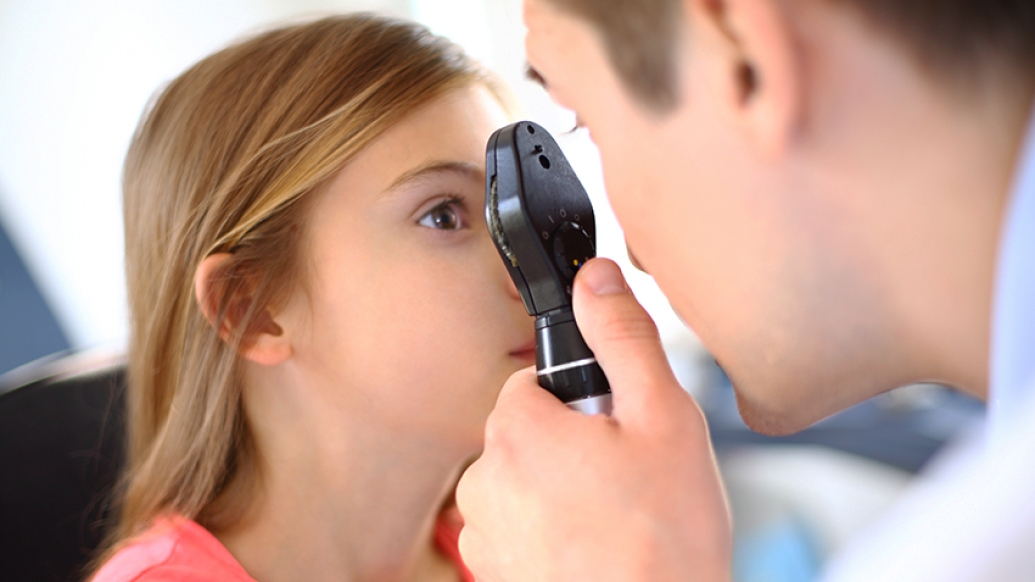The genetic disease that causes vision loss can affect all ages, including young people. Learn more about symptoms, risk factors and management.
7:00 AM
Author |

Retinitis pigmentosa, or RP, is a group of related eye disorders that cause progressive vision loss. These disorders affect the retina, a layer at the back of the eye containing light-sensing cells.
LISTEN UP: Add the new Michigan Medicine News Break to your Alexa-enabled device, or subscribe to our daily audio updates on iTunes, Google Play and Stitcher.
Vision loss occurs as these light-sensing cells of the retina deteriorate. Initial symptoms include problems with night vision and peripheral vision, or side vision.
An estimated 100,000 Americans have RP. It can affect people of all ages, including children.
If your child or someone you know has been diagnosed with RP, here are a few important points that may help you better understand the condition:
1. Patients rarely lose all vision
If your child has RP, he or she may be able to retain good central and reading vision for many years — into adulthood. It is rare for people with RP to lose all of their vision, but many will eventually meet the definition of being legally blind (vision of 20/200 or worse, or visual fields of less than 20 degrees).
SEE ALSO: 3 Ways Genetic Counselors Provide Clarity on Eye Disease
2. It is a genetic disease
Some families with a child who has RP will know of another relative who has the condition. Sometimes several generations of a family are affected — but in other cases the disease is limited to one generation. In some families, the condition affects only males and females carry the disease-causing gene. Genetic testing can help to understand how the condition may run in your family.
3. Family history isn't required
RP is a genetic disease, but that doesn't mean that your child will have a family history of the condition. In fact, 40 to 50 percent of people with RP are the only ones in their families to have the condition.
4. Help is available
Although RP has no cure, there are steps you can take to help your child. You can talk to a low-vision specialist in your child's school to create an individualized plan for schoolwork and for navigating the classroom more easily.
SEE ALSO: Why Does the Doctor Need a Photo of My Eye?
5. Treatments are being developed
Advances in gene therapy are yielding new options for treatment. The Food and Drug Administration has approved a gene therapy treatment — available at University of Michigan Kellogg Eye Center — to target a specific type of RP caused by mutations in the RPE65 gene.
Several other treatments are being developed for other types of RP. Other approaches, such as stem cell therapy and oral medications, are being investigated to help reshape the future for those with inherited retinal degenerations.
To make an appointment in Kellogg's Inherited Retinal Degeneration Clinic, call 734-232-8080.

Explore a variety of health care news & stories by visiting the Health Lab home page for more articles.

Department of Communication at Michigan Medicine
Want top health & research news weekly? Sign up for Health Lab’s newsletters today!





